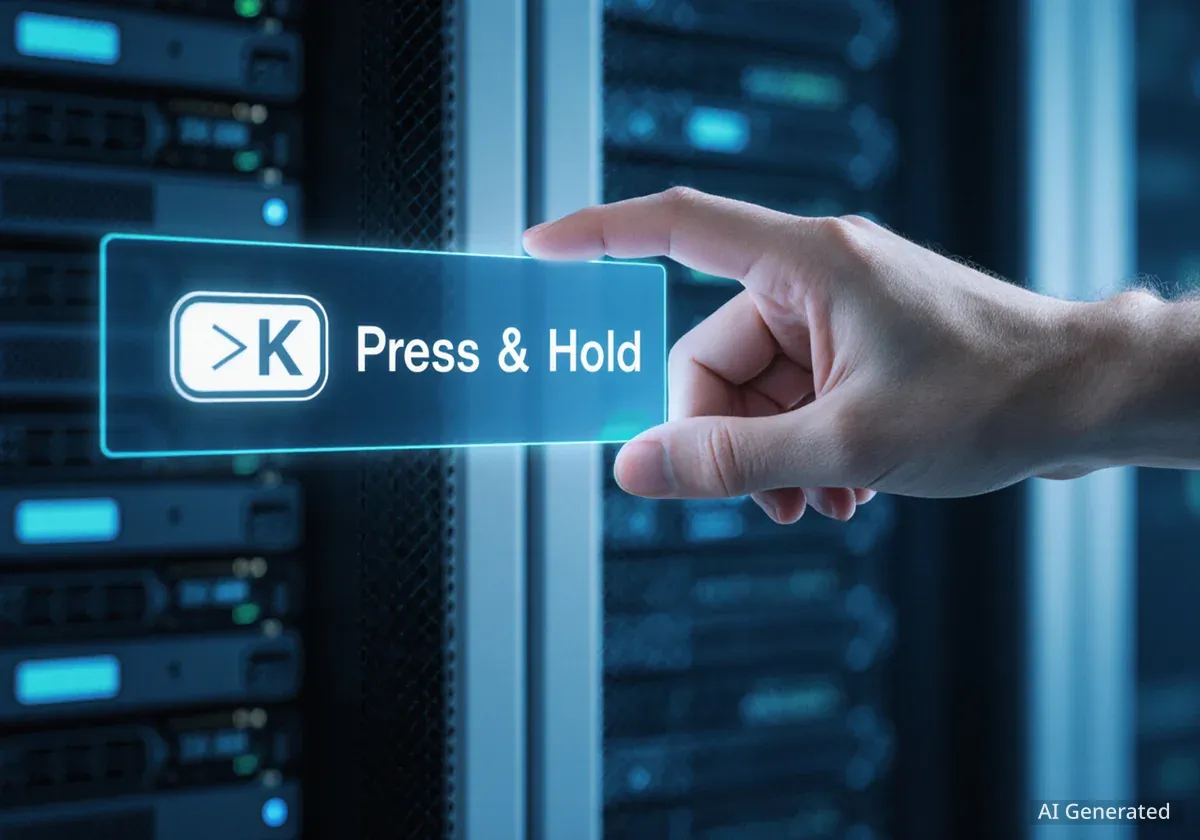Blockchain-based smart contracts are fundamentally reshaping how industries like real estate and supply chains operate. By automating agreements and transactions, these digital tools are reducing reliance on traditional intermediaries such as brokers, escrow agents, and auditors. This shift promises to cut costs, accelerate processes, and enhance transparency, moving beyond theoretical discussions to practical implementation in 2025.
Key Takeaways
- Smart contracts automate payments, transfers, and verifications on blockchain.
- They reduce costs and speed up transactions in real estate and supply chains.
- Real estate sees automation in title transfers, escrow, and tokenized property management.
- Supply chains benefit from automated payments, tracking, and compliance checks.
- Challenges include legal recognition, integrating legacy systems, and reliable external data.
How Automation Works Without Middlemen
A smart contract is essentially a piece of code stored on a blockchain. This code automatically executes predefined actions when specific conditions are met. This eliminates the need for human intermediaries to enforce rules or facilitate agreements.
In real estate, a smart contract can release payments to a seller as soon as property ownership is verified on the blockchain. It can also automatically fulfill escrow conditions. Property rights can transfer digitally, removing the need for extensive manual paperwork.
For supply chains, the application is similar. Payments can trigger automatically upon confirmed delivery. Quality standards, verified by IoT devices, can be recorded on the blockchain. Every party involved gains real-time visibility into the process. This automation minimizes human intervention in routine tasks and significantly lowers the risk of fraud.
Fact Check
Some platforms in 2025 are already using smart contracts to automate property ownership transfers and escrow settlements, reducing closing times from weeks to mere hours.
Real Estate Embraces Digital Agreements
The real estate sector has long faced criticism for its inefficiencies, heavy reliance on paperwork, and the high costs associated with numerous intermediaries. Smart contracts are now beginning to address these long-standing issues.
Platforms are automating title transfers and escrow services. This can dramatically shorten closing times. What once took weeks can now be completed in a matter of hours. Another innovation is the tokenization of properties. This allows property ownership to be divided into digital tokens. Dividends or rental income can then be distributed automatically according to rules coded into the contract.
Integration with Internet of Things (IoT) devices further enhances efficiency. Smart meters, for example, can connect to contracts to adjust rental payments or maintenance fees based on actual usage data. Companies like Propy and RealT are leading the way in demonstrating these applications. However, widespread adoption still hinges on legal and regulatory recognition of these digital agreements.
"The real estate sector has long been known for inefficiencies, paperwork, and expensive intermediaries. Smart contracts are starting to change that."
Supply Chain Transformation
Supply chains also suffer from layers of oversight and manual processes. Smart contracts offer significant improvements here. They can automatically log each step of a shipment, with verification by multiple stakeholders. This creates an immutable and transparent record.
Automated payments mean suppliers receive funds instantly once delivery is confirmed. This helps to reduce disputes and improve cash flow. In the realm of food safety, systems like IBM Food Trust leverage smart contracts. They confirm the quality and origin of food products, building greater consumer trust. Furthermore, contracts can automatically verify if goods meet specific regulatory standards. This enhanced visibility and reduced delays make supply chains faster and more transparent.
Understanding the Shift
The move towards smart contracts signifies a fundamental shift from human-mediated trust to cryptographic trust. The blockchain's immutable ledger ensures that once an agreement is coded and deployed, it executes precisely as designed, without human error or manipulation.
Key Advantages of Automating Intermediary Roles
Industries are increasingly considering the replacement of traditional middlemen with code due to several compelling benefits:
- Lower Costs: Real estate transactions can see fee reductions of up to 50%. Supply chains save significantly on auditing and verification expenses.
- Faster Execution: Deals that historically took weeks can now settle in hours or even minutes.
- Stronger Trust: The immutable records on a blockchain drastically reduce the risk of fraud and simplify audit processes.
- Enhanced Transparency: All parties within the chain can access the same verified data, fostering greater clarity and accountability.
Roadblocks to Full Implementation
Despite the clear advantages, the path to full smart contract adoption is not without obstacles:
Legal Recognition: Many jurisdictions have yet to establish clear legal frameworks for smart contracts, particularly concerning property ownership or escrow services. This uncertainty can hinder widespread adoption.
Legacy Systems: Both real estate and logistics often rely on outdated databases and paper-based records. Integrating these legacy systems with modern blockchain technology presents a significant challenge.
Oracle Problem: Smart contracts often depend on external data sources, known as 'oracles,' such as IoT sensors. If this input data is inaccurate or compromised, the contract may execute incorrectly, leading to unintended outcomes.
Privacy Concerns: While transparency is a benefit, businesses must balance this with the need to protect sensitive trade secrets or personal financial data. Designing contracts that ensure privacy while maintaining necessary transparency is crucial.
Implementation Costs: The initial costs associated with writing, auditing, and deploying complex smart contracts can be substantial. This requires specialized expertise and careful planning.
Comparing Traditional and Smart Contract Processes
The contrast between traditional methods and smart contract approaches highlights the potential for disruption:
| Aspect | Traditional Middlemen | Smart Contracts |
|---|---|---|
| Cost | High fees for brokers, escrow, auditors | Lower fees, automation reduces overhead |
| Speed | Weeks for real estate closings, long audits | Hours for transfers, instant checks |
| Trust | Relies on reputation and human oversight | Blockchain immutability builds trust |
| Transparency | Fragmented data, often hidden | Shared ledger visible to all stakeholders |
| Accuracy | Human errors and paperwork delays | Automated execution reduces mistakes |
| Fraud Risk | Higher due to gaps and manipulation | Lower with auditable records |
Industry Trends and Future Outlook
Academic research consistently points to the transformative potential of smart contracts. Studies show how they can enhance traceability in supply chains, tracking products through every manufacturing stage. Models like “Token Recipes” illustrate how production steps can be recorded immutably on a blockchain.
In real estate, platforms combining blockchain with property tokenization and IoT devices are becoming more common. However, regulatory frameworks often struggle to keep pace with these technological advancements. A 2025 study on blockchain in supply chains reported measurable cost reductions and efficiency gains. Despite these benefits, adoption has been slower than anticipated, mainly due to technical hurdles and the critical need for reliable external data inputs.
Implications for Professionals
The increasing integration of smart contracts is creating new career opportunities. There is a growing demand for professionals skilled in designing, auditing, and integrating these contracts into existing business systems. Individuals looking to contribute to this data-driven transformation can benefit from certifications in data science, which equip them to handle blockchain and IoT data.
For those aiming to lead organizational change and drive adoption, business and marketing certifications offer the necessary tools. The landscape of professional roles is evolving, requiring new skill sets focused on digital contracts and blockchain technology.
Smart contracts are not expected to eliminate every intermediary role overnight. However, they are already demonstrating their capability to automate many functions within real estate and supply chains. By offering reduced costs, increased speed, and greater transparency, they are fundamentally altering how these industries operate. The key question now is not whether smart contracts can replace middlemen, but rather how quickly regulatory bodies, legacy systems, and traditional business models can adapt to this new paradigm. For the foreseeable future, the role of the traditional middleman appears to be shrinking as automated code steps in to fill the void.





